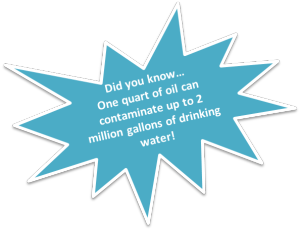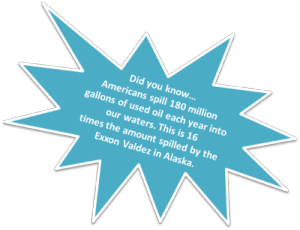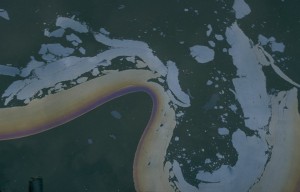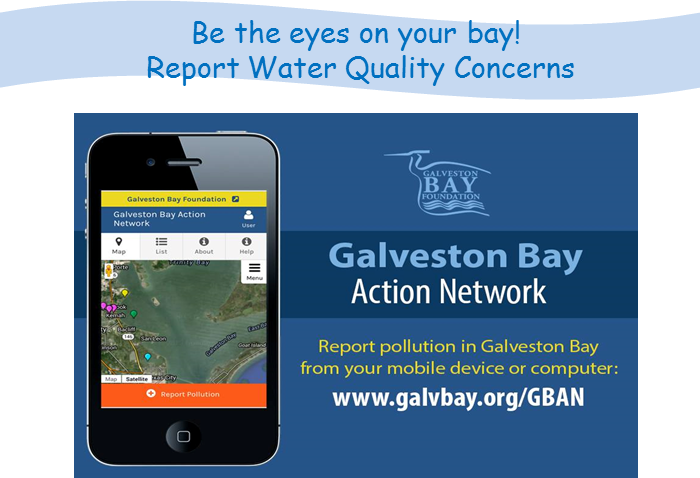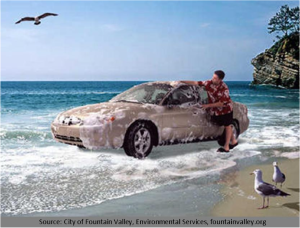
Car washing is a common task for residents in the United States. However, most residents are not aware of the impacts the detergents used to wash their car have on the waterways. The detergent-rich water entering the storm drain and subsequently our waterways, may contain high amounts of nutrients, metals, and hydrocarbons. The good news is that there are simple best management practices to reduce the impact of car wash runoff on our waterways. Just read our Do’s and Don’ts section to learn more.
Another automotive-related concern is the oil and other fluids that leak from cars and wash away directly into waterways and into storm drains. Proper disposal of car fluids such as used oil and antifreeze is an easy solution to a very serious problem.
Do…
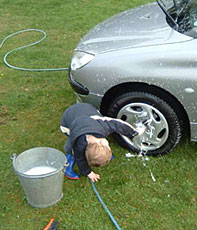
When washing your car at home, park your car on vegetated ground instead of pavement to prevent harsh soaps from going directly into the storm drain.
Do regularly maintain your vehicle to prevent oil, antifreeze and other fluid leaks.
Do check the ground where the vehicle was parked before driving away. Any leaks should be repaired as soon as possible.
Do use a non-toxic biodegradable chemical that will safely break down oil deposits. Use kitty litter to soak up oil as an alternative.
Do wash your car at commercial car washers rather than in your driveway. Commercial car wash facilities often recycle their water or are required to treat their wash water discharge prior to release to the sanitary sewer system.
Do use biodegradable soap when washing your car at home.
Do participate in Storm Drain marking programs.
Do buy recycled (re-fined) motor oil to use in your car.
Don’t…
Don’t continue driving your vehicle when your oil is leaking. Keep a drip pan under the leak and use alternative transportation until the leak is repaired.
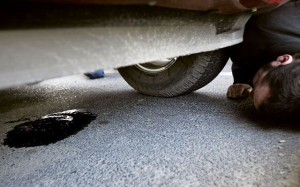
Be cautious of oil leakages and don’t wait to get it fixed. Clean up the oil spill using kitty litter to prevent it from entering stormwater system.
Don’t wash your car on pavement. If you decide to wash your vehicle at home, wash your vehicle on top of grass, gravel or other permeable surfaces.
Don’t dispose of used car oil, antifreeze and other fluids down storm drains. Most auto part retail stores, gas stations, auto repair shops, and hazardous material collection centers accept these.
Prevent hazardous oil from draining into local water sources, including drinking water.
Protect natural habitats, wildlife and aquatic organisms from contamination.
Detergent-rich water from car washing at home becomes polluted runoff that is not treated before being discharged into local waters.
Oil does not dissolve in water, last a long time, sticks to everything and is hazardous to human health.





